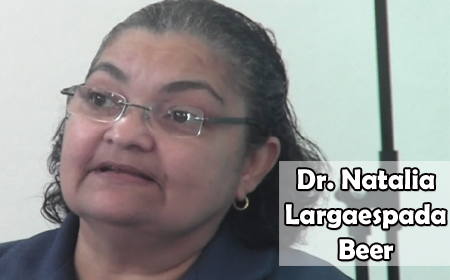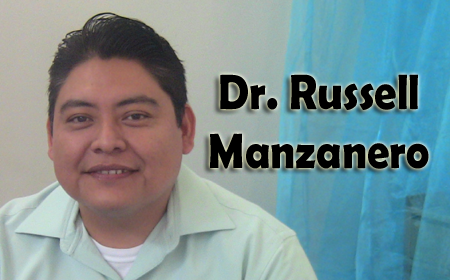– Amandala special report –
BELIZE CITY, Tues. Feb. 9, 2016–Last Monday, the World Health Organization (WHO) declared Zika a public health emergency, and today, Belize—the only Central American country which up to the time of this report has no confirmed case of Zika—ramped up its sensitization efforts in the fight against the Aedes mosquitos, which also transmit two other viral diseases: dengue and Chikungunya (CHIKV).
Belize’s Director of Health Services (DHS), Dr. Marvin Manzanero, announced in a press conference yesterday that the Ministry of Health has sent three suspected cases of Zika to the Caribbean Public Health Agency (CARPHA), the testing facility in Trinidad and Tobago which serves CARICOM. One test result has returned negative for dengue, Chikungunya and Zika, but two results are pending. By Friday, they hope to know the status of those patients, one of whom is a pregnant woman.
The DHS said that at the time, there are no other suspected cases and if a case is confirmed, he said, “We would be the first ones to say it. We don’t hide data! And then, the efforts continue … perhaps they would be further scaled up to prevent an outbreak.”
Belize stands out on the hemispheric map as Zika-free, and Manzanero noted that there are also no confirmed cases in the departments in Mexico and Guatemala immediately adjacent to Belize – Quintana Roo and Petén, respectively.
“What we are doing is if a patient shows up at a health facility, your travel history will be required, and if you have a positive travel history of having been in an area where Zika has been documented, then that triggers a potential Zika case that will require testing …” said DHS Manzanero.
“Sexual transmission is a possible form of getting Zika, if you have been traveling in an area where Zika has been documented,” he added.
The virus can also be acquired through blood transfusions, according to the US Centers for Disease Control (CDC). Brazil has confirmed cases of Zika resulting from blood transfusions, and WHO has consequently issued a warning against donation of blood by persons who have just returned from Zika-affected territories. The advisory also says that persons should not donate blood for 30 days after having an active Zika infection, in precautions similar to those taken for dengue patients.

The person who has been cleared of the vector-borne illnesses was in San Pedro but had a travel history which included Honduras, where Zika had been detected. A second person lives in the Las Flores area, in Belmopan, a community in which residents travel frequently to other Central American countries, and the location where the index case for CHIKV was detected in November 2014. The third suspected case, the pregnant woman, had a fever and a rash.
Manzanero said that the patients have been counseled and public health inspectors went out and did their field investigation.
On Tuesday morning, the DHS led a Zika National Sensitization Meeting at the Inspiration Center in Belize City, with health professionals from the four regions into which the country is divided. Included were managers, vector control supervisors, public health inspectors, and medical chiefs of staff, “to ensure that the entire Ministry of Health staff is on the same page, in terms of Zika,” Manzanero said.
After the sit-down with their health partners, a team from the Ministry hosted a press conference at the same location. It was at that press conference that the DHS shared more details about their plan. DHS Manzanero told the media later in the day that with Zika spreading in our region, they have modified some elements of what they have been doing to tackle dengue and CHIKV, since they are transmitted by the same mosquitos: Aedes aegypti and Aedes albopictus. The representatives from each health regions will now have to duplicate the sensitization meeting at their local level, the DHS said.
Whereas dengue, already endemic here, was first documented in the Americas around 1600, Chikungunya, formerly also called ‘dengue’ due to the similarity of its symptoms to classical dengue, is said to have been first reported in the late 1820s in the Caribbean and other parts of the Americas. However, the last three years have seen a resurgence of Chikungunya, and now the emergence of Zika, first isolated by the Rockefeller Foundation in Uganda, Africa in 1947.
Belize has so far managed to prevent an outbreak of Chikungunya, with only 4 cases having been reported in 2015, and now, it is trying to similarly avert an outbreak of Zika with a two-pronged approach: public education and a nationwide clean-up campaign aimed at reducing transmission not only by the commonly known mosquito vector, but also via sexual contact, since the illness can also be transferred from an infected person during intercourse.

The CDC is now advising pregnant women to avoid exposure to sexual partners who can potentially transmit Zika to them, and Belize’s advice is in tandem with this message.
“One of the key take-home messages is prevention, because there is nothing we can do once a person is bitten by the mosquito with the Zika virus; but there is a lot we can do to prevent that from happening,” said Dr. Natalia Largaespada Beer, Maternal and Child Health Technical Advisor.
Dr. Beer said that 80% of cases are asymptomatic, and only 10% of infected persons will seek medical care, since there are also many who will experience only mild symptoms.
Beer said that precautionary measures should be taken for at least 28 days for persons who have traveled to a country with cases of Zika, and if a person has contracted the virus, direct sexual contact should be avoided for at least 6 months. (It is said that once someone contracts Zika, they may not be able to get it a second time—but even that is being debated.)
Today, Barbados confirmed that three pregnant women had contracted the Zika virus, bringing the number of confirmed Zika cases in that jurisdiction to seven. Zika is of particular concern in pregnant women, due to the possible link with microcephaly (babies born with a small head and underdeveloped brain), as well as the possibility of stillbirths or early deaths in those babies.
Manzanero noted, though, that the cases of microcephaly, thought to be linked to Zika, have only been documented in Brazil. That country has reported about 1.5 million Zika cases and over 4,000 cases of microcephaly cases thought to be linked to the spike in the disease. Although over 20,000 cases of Zika have been reported in Colombia, there were no reports of associated microcephaly. (At a US House hearing on Zika this week, a CDC official confirmed a link between Zika and microcephaly in Brazilian babies who died.)
While Belize has not gone the route of Jamaica, which recently advised women to hold off on getting pregnant as Zika continues to spread rapidly across the Americas, its advisories now include precautionary measures for sexually active persons who have traveled to places where the Zika virus has been detected, and even more so, for persons who show signs and symptoms associated with Zika.

Dr. Russell Manzanero, epidemiologist, said that the symptoms include body rash, fever, joint pain, generalized tiredness, and ‘pink-eye’ with no discharge. The patient is impacted and is contagious for 2 to 10 days, but it takes 21 days for the virus to get out of the system, he explained. DHS Manzanero said that compared to dengue and Chikungunya, Zika is milder, and results in less morbidity, mortality and hospitalization.
Although the chance of death due to Zika is relatively low, it can happen, and there are also concerns that apart from microcephaly, Gullain-Barré syndrome and related paralysis can result in rare cases. WHO says, “In Guillain-Barré syndrome, the body’s immune system attacks part of the peripheral nervous system; the syndrome can affect the nerves that control muscle movement as well as those that transmit feelings of pain, temperature and touch.”
This week, Colombia confirmed three deaths from the syndrome, possibly linked to Zika, and it had suspected a few more fatal cases. There was a report of a Colombian man who, despite having had no Zika symptoms, had suddenly developed the paralyzing syndrome but was recovering with specialized treatment at a hospital. We asked the DHS about concerns over the occurrence of the syndrome with Zika today.
“‘Gullain-Barré’ is turning out to be a buzz word, because of a possible link to Zika, but it has been there for ages,” the DHS replied. He told us that the syndrome is not only linked to Zika, but can result as a consequence of other viral infections and gastroenteritis. He did say, though, that the link to Zika is being investigated, since cases have been reported out of El Salvador and Colombia.
Manzanero said that the Ministry of Health “will be on heightened surveillance,” for the syndrome, which has been seen in Belize before in relation to other viral infections.
Among the measures Dr. Beer outlined to prevent contracting Zika is the use of clothing that can cover the majority of body parts, during the day and the night, the use of bed nets when sleeping at any time, as well as the use of insect repellants with DEET, which are said to provide the best protection from mosquito bites. Another measure is to avoid travelling to countries with confirmed cases of active transmission of the virus. People are also advised to keep yards clean and free of mosquito breeding sites.

Kim Bautista, Chief of Operations of Vector Control, said that the strategy entails focusing on the hotspots, for mosquito-breeding and mosquito-borne diseases. Examples he gave were Santa Elena, Las Flores, Salvapan, San Martin, Maya Mopan, St. Matthews, and Camalote in the Cayo District; Belize City, and certain areas within the Southside; as well as San Pedro, and locations such as San Mateo and San Juan.
The Public Health Department will work with local municipalities and stakeholders not only to disseminate messages on prevention but to also organize clean-up campaigns, and the Government has pledged support, Bautista said. He informed that the Ministry of Education and the Belize Red Cross have pledged to support their work with the municipalities across Belize. Furthermore, DHS Manzanero said that the Belize Tourism Board has indicated that it is willing to partner to educate the tourism sector, as part of the national response.
Whereas fish farming has been used as a control measure in places in El Salvador, where excellent results have been reported from the strategy to use fish to eat the mosquito larvae, Bautista said that this strategy would not work for those places in Belize where the problem is largely due to containerized breeding in drums and old tires. So aerosol-spraying with malathion will continue to be the main official strategy for trying to eliminate adult Aedes mosquitos. We were informed that the vector control personnel have a spraying schedule of every 7-10 days, because of the lifecycle of the mosquitos.
This week, it was reported that US president Barack Obama had asked for US$1.8 million in emergency funding for Zika, including over US$300 million for foreign aid to places like the Caribbean. We asked whether health officials in Belize would seek additional funding for its Zika prevention program, but were told that the submission for the 2016-2017, budget year had already been made before the Zika problem emerged.
Currently, the budgetary allocation for the vector control program is $800,000, said Bautista, who also noted that they get external funding from agencies such as the EU for projects. However, he noted that the Government usually provides extra funding when they need it.
Anyone wishing to have more information is asked to contact the Belize Ministry of Health or receive notifications via the Facebook pages of the Ministry of Health and the Director of Health Services. We were advised that a hotline would be activated shortly.

